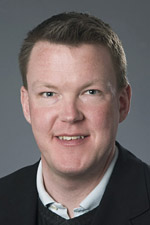
Director of Centre for Internet Studies
Ph.D., Associate Professor of Critical Social Media Studies
School of Communication and Culture
Aarhus University
My research interests is first and foremost the online uses and conditions of democracy and citizenship in a society mediated by social media and widespread use of algorithms and artificial intelligence. I investigate the Internet as a medium for campaigning and political communication and as a forum for debate among citizens. I have researched the use of Internet in the last five Danish general elections and are working on international projects comparing data from several countries. I rely on digital methods for research and has also published on digital content analysis, network analysis and other digitally native methods. Among my other research interests are the public sphere, political communication and general social theory. I have published more than 40 Danish and international articles, five monographies and three international anthologies. My most recent book is ”the Medieval Internet”, Emerald, 2020
Currrent research projects:
Internet in Danish elections 2007-22, co-sponsored by AU SHAPE
Online and offline after the pandemic, project on digitalization and the future of technology in the welfare state, project in progress with CFI members and AAU TANTLAB, from summer 2023.
Recent publications:
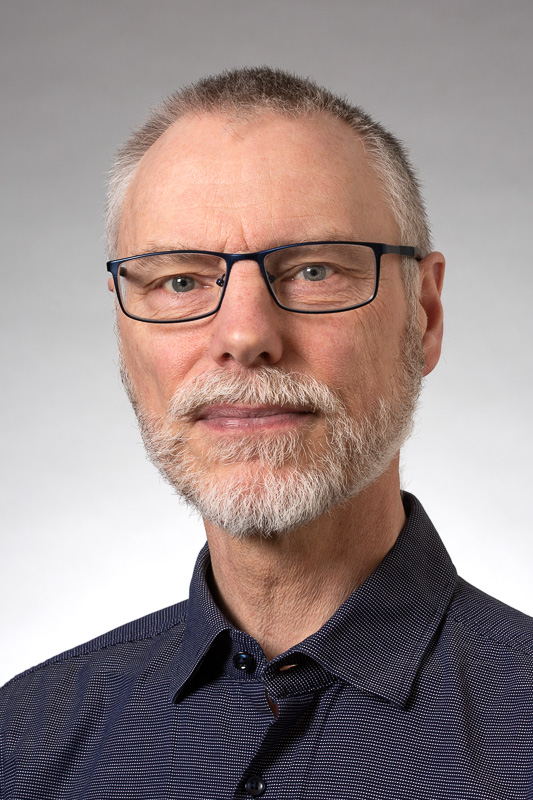
Professor, PhD
Centre Director of the Centre for Digital Methods and Media, School of Communication and Culture, Aarhus University
E-mail: nb@cc.au.dk
My research interests are the history of the Internet as a means of communication, and Digital Humanities, including archiving the Internet as well as the use of digital research tools. I have published a number of articles and book chapters, monographs, and edited books, including The historical web and Digital Humanities: The case of national web domains (ed. with Ditte Laursen, Routledge, 2019), The SAGE Handbook of Web History (ed. with Ian Milligan, SAGE, 2019), The Archived Web: Doing History in the Digital Age (MIT Press, 2018), Web 25: Histories from the first 25 years of the World Wide Web (ed., Peter Lang, 2017), The Web as History: Using Web Archives to Understand the Past and the Present (ed. with R. Schroeder, UCL Press. 2017. In addition, I am heading the research infrastructure “NetLab”, and I am the Managing editor of the international journal Internet histories: Digital technology, culture and society.
Recent publications:

Associate Professor at the School of Communication and Culture, Aarhus University
E-mail: hb@dac.au.dk
My recent research focuses on various aspects of digital journalism. An important aspect of this relates to how online journalism constitutes time and how this has changed since the first news sites. This is related to a broader focus on how online magazines and brands have developed.
Recent publications:
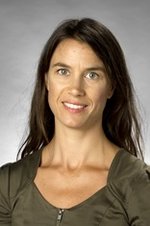
PhD Candidate, MA
School of Communication and Culture, Aarhus University
E-mail: imvmsd@dac.au.dk
My PhD project (2012-) Mediatized parenthood studies the role of internet media in the transition to parenthood. Today's parents have access to counseling and communication resources with a volume, speed, and scope that is unprecedented in history, and social media provide vast new opportunities for displaying family life. My project aims to elucidate mediatized parenthood through an examination of how internet media and interactive mobile technologies are intertwined with the first formative phase of parenthood. I study how Danish first-time parents use internet media in their new social roles as parents, where and how parenthood practices and media practices intersect, and the key characteristics of this increasingly mediatized life transition.
Project affiliation: http://mediatization.ku.dk
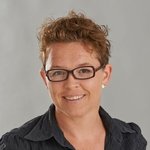
Associate Professor, PhD
School of Communication and Culture, Aarhus University
E-mail: nortth@cc.au.dk
My primary research interest is social media and their impact on the language use and language change. I am interested in both individual and organisational uses of the online social networks as a forum for identity construction, social interaction, and strategic communication. I have done empirical studies of Twitter, Facebook and Instagram. Currently I am doing research on everyday written online interaction, including emojis, memes, punctuation and spelling.
Recent publications:
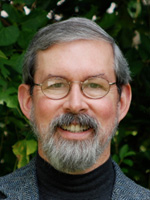
Honorary member of the Centre for Internet Studies, Professor in Media Studies, Department of Media and Communication, University of Oslo; Emeritus Professor of Philosophy and Religion, Drury University.
E-mail: c.m.ess@media.uio.no
Digital Media Ethics; Medium Theory; Mediatization; Information and Computing Ethics; Internet Research Ethics; Cross-cultural approaches.
Recent publications:
Personal website:
http:www.hf.uio.no/imk/english/people/aca/charlees/index.html
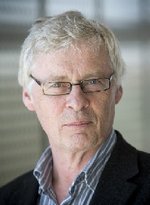
Honorary member of the Centre for Internet Studies, Professor Emeritus, dr.phil, Department of Communication, University of Copenhagen.
E-mail: finnemann@hum.ku.dk
In the early 21th century the processes of digitization of culture and society has entered a new phase. On the one hand, digital media is today used all over. We scan the world from outer space to the body's interior. On the other hand, a still growing number of people participate in the daily production of digital materials. In the years to come, we can expect that a rapidly growing part of society articulate itself and is reflected in the increasing number of digital genres of digital media platforms. We get more and more diverse digital materials spread over more and more diverse, more customized digital media. We will also have a growing variety of search and presentation tools. Digital born materials thus becomes an increasingly important, often unique historical source material. This development presents challenges for selection, curation, preservation, analysis and dissemination of knowledge in all disciplines. It challenges our concepts of computers and digital media since a growing part of digital materials are messy and non-parametric which does not fit with the dominating 20-century concepts of parametric data stored in well-ordered relational databases. It also challenges our archive and library systems, which have historically been built up around the more stable and localized written and printed sources.
Thus fundamental questions are raised about how we can describe the swelling and heterogeneous data materials and how we should organize the 21st century knowledge resources and knowledge dissemination? The study of digital materials will develop into a field in its own right.
Recent publications:
Finnemann, N. O. (2019): Web Archive. In KO KNOWLEDGE ORGANIZATION. KO, Jahrgang 46(1), 47 – 70.
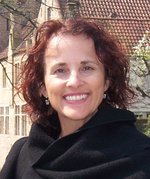
Honorary member of the Centre for Internet Studies, Associate Professor, PhD, School of Communication and Culture, Aarhus University; Guest Professor, Informatics, Umeå University, Sweden; Affiliate Professor, School of Communication, Loyola University, Chicago
E-mail: amarkham@cc.au.dk
My research within Internet studies has mainly been focused on the lived experience of ICT users and online ethnography. My ethnographic studies of Internet users are represented in the book Life Online: Researching Real Experience in Virtual Space (1998). I am also interested in qualitative methodologies and ethics, and have published several articles within these areas.
Personal website: http://markham.internetinquiry.org/
Twitter: annettemarkham
Annette Markham is currently a Professor of Media and Communication and Director of the Digital Ethnography Research Centre at RMIT University, Australia. Annette studies the lived experience of human/machine interactions, impact of datafication and algorithmic logics on social practices, and critical approaches to digital and algorithmic identity. She is also a philosopher of method, exploring epistemological frameworks for ethical models for speculative, mixed-method, ethnographic, and multi-entity research. Annette co- founded and co-directed the interdisciplinary Digital LivingMasters degree program for the department of Information Studies and Digital Design at Aarhus University from 2013-2020, and was co-director of Aarhus University’s Digital Living Research Centre. She created and directed the Future Making Research Consortium, a collaboratory to bring together scholars, artists, and activists, particularly early career researchers, to study the intersection of digital technology, ways of being in the world, and future possible meanings, practices, and social structures. She regularly hosts post-graduate workshops, an annual Skagen Institute Conference on Transgressive Methods, PhD summer schools, and special interest seminars and symposia in the area of digital culture, ethical decision making in automated and algorithmic society, citizen social science research methods, and participatory models for scholarly activism. Her writing can be found in a range of international journals, books, and edited collections. See https://annettemarkham.com to find her professional blog, various publications, and information about recent or upcoming talks.
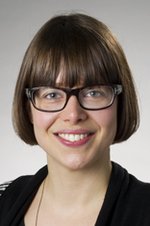
Assistant Professor
School of Communication and Culture, Aarhus University
E-mail: janne@cc.au.dk
My research interests include media history, cross media, web historiography, web archiving, web tracking, privacy and consent. I am part of the Danish research infrastructure project DIGHUMLAB (Digital Humanities Lab Denmark) where I head LARM.fm, a community and research infrastructure for the study of audio and visual materials, and participate in NetLab, a community and research infrastructure for the study of internet materials. I am currently working on projects about the history of the Danish web and the ways to study the web historically, and on projects about web tracking, privacy and consent. I am also very interested in the new possibilities and challenges when working with and across digital archives, including web archives. I am a board member of the Centre for Internet Studies and a member of the NetLab Forum.
Recent Publications:
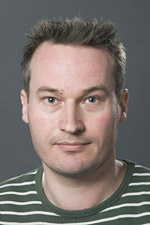
Associate Professor, PhD
School of Communication and Culture, Aarhus University
E-mail: imvjet@cc.au.dk
My primary research interest is the relation between the social and communication media. For the time being I work with the relation between socio-media-evolution and the Anthropocene. Theoretically I mostly use sociological systems theory and medium theory. My main empirical area is digital media in relation to education, but I also publish about digital media in relation to organizational communication, society, and interaction.
Recent publications:
Personal website: https://jespertaekke.dk/en/